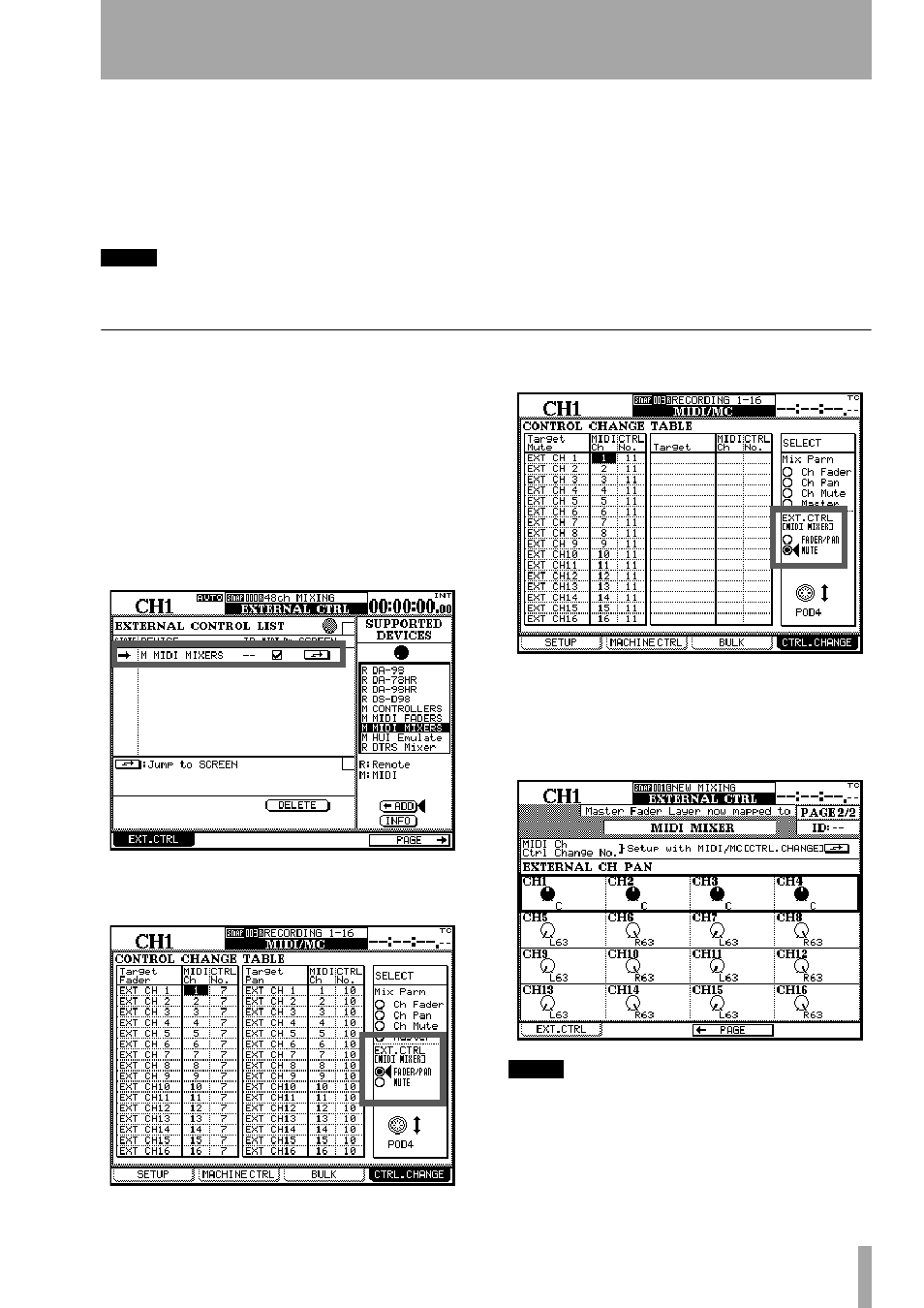Midi fader layer – Teac DM-24 Addendum User Manual
Page 19

TASCAM DM-24 2.0 release notes
19
DM-24 version 2.0—Release notes—GPI functionality
A port (defined in the
SETUP
part of the screen has to
be selected for each event). Use the dial and
ENTER
key for this. Ports which have not been selected as
time event ports produce a warning popup message.
Choose a type, as for the key manual events (either a
transition or a pulse).
NOTE
Note that the same port can output different types of
event at different times. You should be careful when
setting up a sequence of events from the same port to
make sure that there is no conflict or contradiction.
The event types can be changed even when timecode
is running.
The events can be sorted by time (
SORT TIME
) or by
port (
SORT PORT
) for easy checking.
Individual events in the list can be deleted by high-
lighting them and using the on-screen
DELETE
button.
MIDI fader layer
A new MIDI mixer layer has been added.
Previously, the audio faders, mutes and pan controls
could be assigned to any MIDI channel and control-
ler number. While this capability has been retained,
another MIDI layer with the same attributes that does
not affect the audio faders has been added.
This new MIDI mixer layer is set from the external
control screen. When this is active, the mute keys,
faders, and the soft panpots send out MIDI Control
messages.
Use the MIDI
CTRL.CHANGE
screens to determine
what messages are sent by each DM-24 control. This
screen shows the faders and pan settings:
And this one shows the mute settings:,
The default setting is for DM-24 channels 1 through
16 to transmit on the corresponding MIDI channels,
with the fader being controller 7, the pan controls
(shown below) being controller 10 and the mute
being controller 11.
NOTE
The following MIDI controllers may not be assigned to
DM-24 controls: 0, 6, 32, 38, and 96 through 127. Warn-
ing messages are shown if duplicate assignments are
attempted.